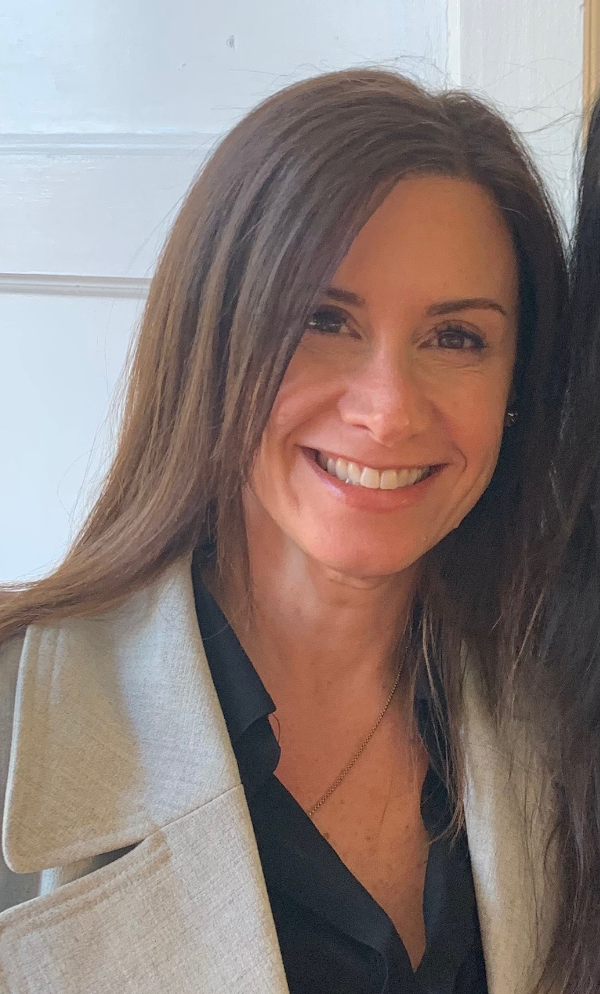Interview with a "Jewban" Entrepreneur
We love talking with members of our Jewish community who are doing interesting things. Today, we talked with Cindy White. She and her family run P2P LLC, a Cuba-focused travel agency, and Chateau Blanc, Cuba’s first kosher bed & breakfast.
Q: What are the businesses that you have in Cuba?
We have a Cuba-only travel agency that’s a US-based business. Then we have a kosher B ‘n’ B in Havana, and that’s our Cuban business. We bring people to Cuba, and if they observe kashrut, they can stay at the B ‘n’ B. If you don’t keep kosher, that’s fine too. We will be taking you out to eat. I run these businesses with my parents and brother. We can facilitate travel for one family, one couple, a group, anything.
Q: What is your family’s history in Cuba? How did they come to the US?
Both of my parents were born in Cuba. Their parents came from Eastern Europe—Russia, Romania, Lithuania and Poland. They came to Cuba to escape the Holocaust, and my grandma came earlier to escape the Cossacks in Russia. When the Cuban Revolution happened in the late 1950’s, they knew what was going to happen because they saw what happened with Hitler. They knew this was not going to end well, so they decided to come to the US. My parents were teenagers, and they settled in Miami. The Cuban community in Miami welcomed all the newcomers and helped them acclimate to the life that they had. They lived there until my dad graduated and they moved to New York. That’s where my brother and I were born.
My dad worked for IBM and we all spoke fluent Spanish. We moved to Spain for a bit, and my dad met a guy from Alabama who also worked for IBM, and they decided to move to North Carolina with IBM. Shortly after that, they started their own business.
Q: Why did you decide to start these businesses?
In 2007, a bunch of “Jewbans” (Cuban Jews) decided to go back for the first time since 1960’s. My mom didn’t go because she was worried they wouldn’t let her out. The rest of us went, and it was an incredible experience. It was bittersweet for Cuban-born people because the country wasn’t the way they left it. On the plane back, my dad and I talked about how we wanted to do something to help the Cuban Jewish community because before the revolution there were 15,000 Jews there and after there were 1,500. Most left before or during the Revolution. We thought the best way to help the community was to bring people to see the gorgeous country, but also the to help the Jewish community feel less isolated. That’s why we started the tour agency. It’s very difficult for observant Jews to come to Cuba due to the lack of kosher restaurants, so we started the kosher B ‘n’ B. My family doesn’t keep kosher, so we had to learn a lot! We have family in Israel who keep kosher, so they’ve helped. It’s now the only place in Cuba where you can get kosher food, which is not easy because of the embargo. We have to import everything. There’s a limit of 50 pounds per suitcase, so in the beginning we had to bring everything by hand.
Q: How is the Cuban Jewish community dealing with recent challenges?
During the Obama administration, a lot of the restrictions were lifted and an influx of people came. The Jewish community was overjoyed. Most people who come bring aid. The next administration made it very difficult, though not impossible. The biggest block is getting Americans to understand that it IS legal to visit Cuba.
COVID has been the worst possible thing to happen. If you think that we here in the US had supply chain issues before, it was nearly impossible for Cuba to get anything. Medicine was very scarce and food was hard to come by, so they suffered a lot. The current administration made it a little easier but since the pandemic, tourism is not what it once was. This past week there was a fire at an oil depot in Matanzas, a port city. There was 1 fatality and 125 injured. It shut down a thermoelectric plant, so there have been widespread blackouts every day in the middle of summer. Without electricity things are even worse.
Q: What is the biggest misconception people have about the Cuban Jewish community?
Most people don’t think there’s a Cuban Jewish community, let alone that there are three working synagogues! There are no rabbis, but they are led by leaders of their community. They serve Conservative, Orthodox, and Sephardic Jews.
Q: What do you hope your business will be like in the next 5-10 years?
We hope to bring more people. It’s much easier for non-Americans to travel, and many do. Canadians are the one of the biggest population of tourists. We want to spread the word that Americans can go and there is kosher food now.
Q: What is one thing you’d like people to understand about your business and about the Cuban Jewish community?
There are people who refuse to go to Cuba, even to help the Jewish community, because part of the money they spend goes to a communist regime. I can understand why they feel that way but I feel that the citizens of Cuba need all the help we can give them. They very much appreciate it all, and 100% of the aid our guests bring goes to the community. You can travel there under 12 different categories, including “support for the Cuban people.” You have to keep your itinerary to about 75% of what your category is. Our itineraries are planned to support Cuban people—restaurants, taxis, salsa lessons, all to support the Cuban people. Our staff and managing partners are Cubans, and we are helping them support themselves and their families in a country where it’s very difficult to make ends meet with the salary that they get and their ration cards.
Q: How can Americans help?
We partner with Pack for a Purpose, an organization started in Raleigh by Rebecca Rothney. If you are traveling anywhere in the world, you can go to their website and click on the country and go to a place to drop off your aid. Each country has two different projects that have lists of needs. “Small space (in your suitcase). Little effort. Big impact!” We have two projects listed. One is the pharmacy at Patronato, the Conservative synagogue. They distribute medication to the Jewish community, but also any Cubans that need medication. The other project is at the Sephardic synagogue, which serves mostly the elderly.
If you are not able to travel to Cuba and wish to help, there are other options. Supermarket 23 is a site where you can go on the website and buy food, medication and more. You pay for it online with your credit card, and they will deliver it to a needy family or one of the two synagogues.


